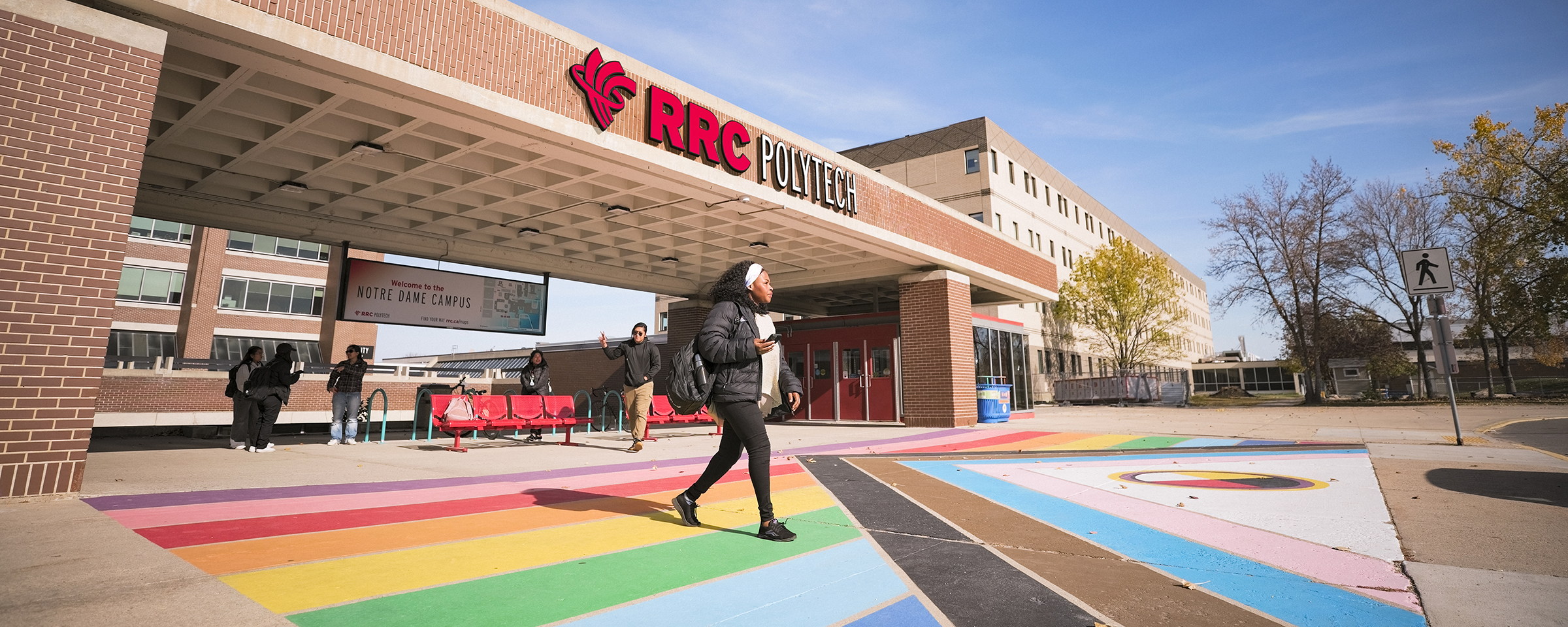College goes whole hog on partnership with Manitoba Pork
Always on the cutting edge of culinary innovation, Red River College students are learning how best to “put it in pork.”
Last week, the College’s Paterson GlobalFoods Institute (PGI) played host to a product information showcase and meat-cutting demonstration by Manitoba Pork — the latest result of a longstanding partnership between the two organizations.
Susan Riese, manager of public relations and consumer marketing programs at Manitoba Pork, estimates the partnership is close to 20 years old, dating back to the first-ever Manitoba Pork Cook-off, a now annual event that allows RRC’s Culinary Arts students to show off their pork prowess in the kitchen.
“We want to encourage these young aspiring chefs to think of pork as the top choice protein [with] all the versatility and nutritional benefits that come with that,” says Riese. “Some day they’ll be in a position to influence or plan menus or maybe even have their own restaurants, so we’re just reminding them that it’s not always about beef and chicken — that pork has a place at the table.”
In addition to the cook-off, cutting demos and other workshops, Manitoba Pork has on-site recognition at PGI in the form of the Manitoba Pork Apprenticeship Lab.
Culinary arts instructor Cameron Tait (shown above, at right) works in the lab with tomorrow’s top chefs to change the public’s perception of pork.
“In North America, we tend to only look at primary cuts like tenderloin, pork loin and chops, [but] there are so many other really interesting cuts you can utilize on the pig,” Tait says while cooking up pork jowl, a portion that’s especially popular in Japan.
“On a chicken, you’ve got legs, thighs and breasts, but on a hog, you’ve got everything from snout to tail. You can do moist cooking, dry cooking, curing, smoking, air drying, making hams, making pancetta, making sausages — it’s endless, really. I think it’s more versatile than beef, chicken, veal, lamb, everything. And it’s more affordable, too.” Read More →




 Red River College has joined forces with the Western Canadian Innovation Offices (WCIO) consortium as part of an effort to connect Western Canadian industry needs with the array of research and innovation resources that exist in WCIO’s nearly 40-member consortium of universities, colleges and polytechnics across the West.
Red River College has joined forces with the Western Canadian Innovation Offices (WCIO) consortium as part of an effort to connect Western Canadian industry needs with the array of research and innovation resources that exist in WCIO’s nearly 40-member consortium of universities, colleges and polytechnics across the West. A research partnership with Manitoba Hydro focusing on sustainable building infrastructure and transportation has earned Red River College the top honour from the
A research partnership with Manitoba Hydro focusing on sustainable building infrastructure and transportation has earned Red River College the top honour from the 



